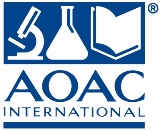AOAC INTERNATIONAL Joins Forces with the African Organisation for Standardisation

ROCKVILLE, MD, US, April 28, 2021 /EINPresswire.com/ -- AOAC INTERNATIONAL and the African Organisation for Standardisation (ARSO) announced today that they have signed a Memorandum of Understanding establishing a strategic partnership to advance food safety and security in Africa.
ARSO is Africa’s intergovernmental standards body, formed in 1977 by the African Union and the United Nations Economic Commission for Africa. Its mandate is to develop tools for standards development, standards harmonization and implementation to enhance Africa’s internal trading capacity, increase Africa’s product and service competitiveness globally, and uplift the welfare of African consumers. It also serves as a standardization forum for future prospects in international trade referencing.
ARSO is a signatory to the World Trade Organization’s Technical Barriers to Trade (TBT) agreement and is an active observer member of the TBT Committee in its work toward harmonization, equivalence and mutual recognition arrangements for agriculture and food products.
Contaminated food continues to cause numerous devastating outbreaks in the African region, and food safety related problems still account for almost 2,000 fatalities on the continent daily. The World Health Organization reports that foodborne hazards are responsible for 137,000 deaths and 91 million acute illnesses in Africa every year, mostly affecting children under the age of five.
The 2018 formation of the African Continental Free Trade Area, which includes 54 of the 55 African Union nations and requires members to remove tariffs from 90 percent of goods, is bringing a rapid increase in trade of food. But it is also creating challenges due to enormous disparities in food testing infrastructure. In some countries, labs are well equipped, using advanced techniques and international official reference methods. In others, labs are struggling to achieve basic proficiency.
While increased trade and closer economic cooperation between developing countries represent a considerable potential for development, realizing this potential presents a major challenge especially in terms of an effective continental standardization infrastructure.
In 2018, at the inaugural meeting of the newly formed AOAC INTERNATIONAL Sub-Saharan Africa Section, scientists identified a set of recommendations to advance development and harmonization of analytical methods, including prioritizing validated analytical methods for traditional African foods, public-private dialog on food safety capacity building, and collaboration with regional stakeholders such as ARSO.
Since then, the AOAC Sub-Saharan Africa Section has established itself as a key player in the region and has been invited to collaborate with numerous pan-African quality infrastructure organizations such as ARSO and the Intra-African Metrology System.
“AOAC INTERNATIONAL can play a critical role in providing technical and scientific advice on analytical testing standards, especially for many of the local food commodities now being traded beyond national borders, and within the 39 member States of ARSO,” said ARSO Secretary-General, Dr. Hermogene Nsengimana. “This collaboration agreement is a significant step to realizing these goals.”
Cooperation between the two organizations will include areas such as conformity assessment regimes in traditional African foods; capacity building; peer reviews and idea exchange; and development and harmonization of standards in foods and beverages, dietary supplements, and infant formula, industrial chemicals and fertilizers.
The agreement also envisions development or expansion of laboratory proficiency testing to include regionally specific commodities and their reference materials. In addition to jointly promoting awareness among policy makers and governments on the need for standardization such as Performance Tested Methods and infrastructure, the agreement establishes a forum for joint public-private high-level dialog including webinars and training.
“AOAC’s Official Methods of Analysis are respected worldwide and can be used with confidence by industry, regulatory agencies, research organizations, testing laboratories, and academic institutions,” said Erin Crowley, President of AOAC INTERNATIONAL. “We look forward to working with ARSO to expand our stakeholder network in Africa while increasing use and improving access of AOAC Official Methods across the African Continental Free Trade Area.”
For more information, please contact Dawn Frazier, Director of Communications at dfrazier@aoac.org.
About AOAC INTERNATIONAL
AOAC INTERNATIONAL is a globally recognized, 501(c)(3), independent, third party, not-for-profit association and voluntary consensus standards developing organization founded in 1884. When analytical needs arise within a community or industry, AOAC INTERNATIONAL is the forum for finding appropriate science-based solutions through the development of microbiological and chemical standards. The AOAC Official Methods of Analysis database is used by food scientists around the world to facilitate public health and safety and to promote trade. For more information, please visit www.aoac.org.
Dawn Frazier
AOAC INTERNATIONAL
+1 301-924-7077 ext. 117
email us here
Visit us on social media:
Facebook
Twitter
LinkedIn
Legal Disclaimer:
EIN Presswire provides this news content "as is" without warranty of any kind. We do not accept any responsibility or liability for the accuracy, content, images, videos, licenses, completeness, legality, or reliability of the information contained in this article. If you have any complaints or copyright issues related to this article, kindly contact the author above.
